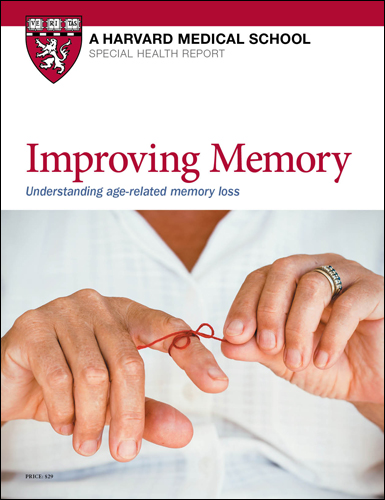Menopause and memory: Know the facts

By 2050, 13.8 million people in the US will likely have Alzheimer's disease, and two-thirds will be women. The economic cost is staggering, as it is estimated to rise to more than $2 trillion. Women are at the epicenter of this because the economic threat is especially dire for women, given they are an increasingly powerful element of our global economy and the vast majority of unpaid caregivers. Thus, maintaining intact memory starting early in midlife with the transition to menopause is critical not only for women themselves, but also for their families, society, and our economic health.
Preventing memory decline starts in early midlife
The decline in cognitive ability is not limited to neurodegenerative diseases like Alzheimer's disease (AD), but also part of healthy aging, with consequences for our quality of life. Most studies of aging and cognitive decline, particularly studies of AD, begin in people in their 70s. However, understanding factors that happen earlier in life, and how they impact age-related brain changes, is critical for developing prevention strategies for one of the major public health challenges of our time.
What happens to women's brains through the transition into menopause?
In addition to chronological aging, women undergo reproductive aging in early midlife: menopause, during which they experience a depletion over time of ovarian hormones such as estradiol, the primary form of estrogen that works in the brain. Our research team and others have demonstrated that estradiol directly relates to changes in memory performance and reorganization of our brain circuitry that regulates memory function. Thus, women and men undergo different aging processes, especially in early midlife when reproductive aging is more critical for women than chronological aging. However, cognitive aging is rarely considered a women's health issue. This is essential, because viewing brain aging as beginning in early midlife, and understanding the impact of menopause on the brain, will allow for development of strategies to prevent memory loss for women.
On average, women perform better than men on measures of verbal memory, beginning as early as post-puberty. However, women's advantage for verbal memory performance is reduced with menopause. Many women report increased forgetfulness and "brain fog" during the menopausal transition. All women eventually undergo menopause, but there is a large age range for when it begins (from late 40s to early 60s), and substantial variation in women's experience of its impact.
Over the last 15 years, an increasing number of studies are mapping out the intricate ways in which menopause affects the brain and what helps maintain intact memory. For example, menopause can affect how brain cells are generated, connect with each other, and even die, and these processes impact brain regions that are critical for memory. Menopause also lowers the level of glucose in the brain, the primary fuel used by brain cells. The brain then looks to other metabolic sources to provide the necessary fuel to function — that is, the brain adapts to a new hormonal environment in order to maintain functioning.
Further, women with other medical conditions like diabetes and hypertension are at increased risk for cognitive decline. Research into understanding this is focusing, in part, on how the brain and body share similar processes to produce energy to function (metabolism), and how blood pressure and other aspects of the vascular system function similarly in the brain and body.
Can hormone replacement treatment help?
Research shows that timing matters. Initiation of hormone replacement (HR) in perimenopause (roughly four to eight years before menopause) or early menopause may have positive effects on brain activity and memory function, although systematic HR trials have not been conducted during perimenopause. Initiation of HR in late menopause may have adverse effects on the brain, and increase risk of disorders like Alzheimer's disease. Research is critically needed to establish the most effective timing of administration, hormonal formula, dose, route of administration (for example, orally or by skin patch), and duration.
Further, to date much of the HR research has been conducted in healthy women, and little is known about its impact in women with chronic diseases such as diabetes and hypertension. Finally, there may be differences in responses in women who are genetically at high risk for brain disorders, like AD, that show increased benefits for using HR. Research shows us that one size does not fit all, and precision medicine is needed to identify which women may benefit the most. One example is for women with bilateral removal of the ovaries, particularly at a young age, for whom HR has been found to be very beneficial for brain function. In some women HR may not be an option, and alternative mechanisms may need to be identified, such as targeting levels of glucose and other effects associated with estradiol regulation of the brain.
What can women do to maintain brain health?
There are three major pillars for maintaining intact memory: effortful physical activity, effortful cognitive activity, and social contact. Research shows that the first two of these have direct beneficial effects on the brain, even at the level of cellular function. Social contact is another form of keeping our brains active by external stimuli, novel experiences, and perspectives outside of ourselves. Dietary habits (such as the Mediterranean diet, or intake of omega-3 fatty acids like in fish oil) have also had beneficial effects on memory function. The good news is that these are modifiable lifestyle habits, which may be particularly important for women with hypertension or diabetes who are at higher risk for cognitive decline.
Finally, adequate sleep (currently suggested as seven hours a night) is critical for brain health. Research has shown that during certain periods of sleep, learning is consolidated; that is, sleep plays a key role in storing and maintaining what we learned during the day, and even helps in clearing the brain of amyloid, one of the markers of potential AD pathology. More research is required to fully understand the beneficial impacts of these modifiable lifestyle factors. However, the time to start incorporating them into your life is now.
About the Author

Jill M. Goldstein, PhD, Contributor
Disclaimer:
As a service to our readers, Harvard Health Publishing provides access to our library of archived content. Please note the date of last review or update on all articles.
No content on this site, regardless of date, should ever be used as a substitute for direct medical advice from your doctor or other qualified clinician.
















